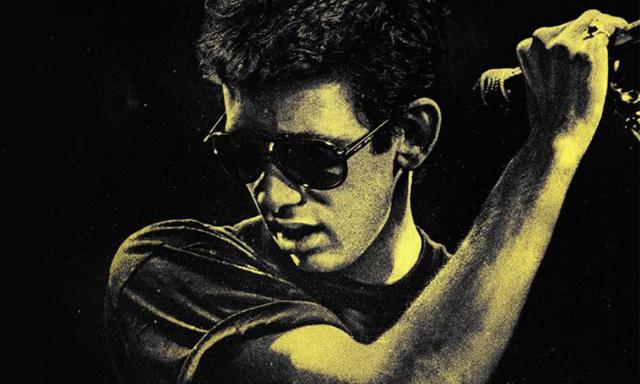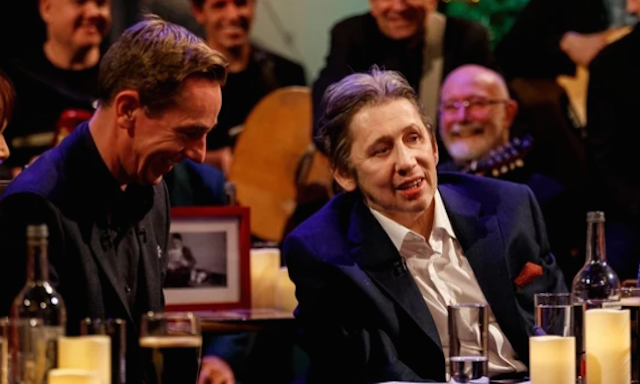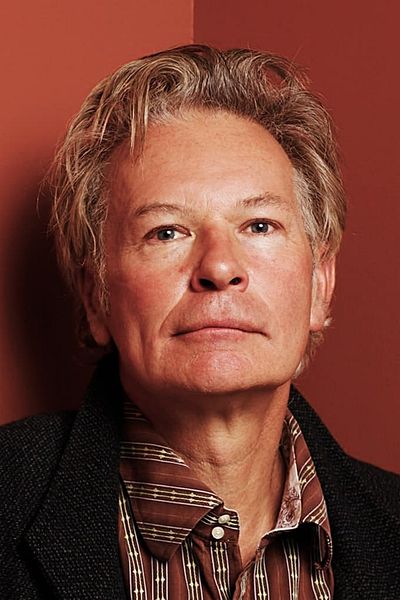We spoke to Julien Temple, the director of 'Crock of Gold: A Few Rounds with Shane MacGowan', ahead of the release of the movie this weekend.
Temple told us about how 'Crock of Gold' came to have the structure that it did, and his thoughts on Shane MacGowan.
The director talked us through the challenges of making a music doc based on a subject who hates to be interviewed. He also told us about navigating the tricky field of representing Ireland, as Shane's sense of national identity is core to his persona.
'Crock of Gold' tracks the highs and lows of Shane MacGowan's life and career as an artist. It depicts the Pogues frontman in a way quite unlike anything that's come before.
You and Shane go way back to the days of punk. Did that help foster a sense of trust with him so that when it came to making the documentary, you could do it in a way that few other directors could have made it?
“Possibly. It didn’t stop it being a very difficult film to make, because Shane doesn’t particularly like being interviewed. He’s not the easiest guy when he is feeling aggressive and abrasive. One of his many personas, it seems. We spent a lot of time waiting around with no shows and money running out. So it was a difficult film but certainly a worthwhile film to make because the guy is so fascinating and deserving of a wider audience.
“People should know who he is and understand what he represents. His unique insights on England and Ireland, having grown up in London, and being so passionately Irish, is a fascinating combination. A contradiction, in a way, but that’s where the energy comes from that propels the whole journey, really.”
At what point did you decide to base the film around Shane sharing rounds of pints with his friends, musicians etc.?
“There’s something artificial about sticking someone in an armchair, putting a big camera in front of them, and expecting that to be a normal insight into who this person really is. So the fact that he wouldn’t do conventional interviews, and that he wasn’t really that cooperative, made us explore other ways, and what was suggested was conversations rather than direct interviews.
“So we asked various people who knew Shane or Shane was interested in talking to, and I think that does show you different aspects of who Shane is because we see him in very different ways in those interviews. He’s one thing with Johnny Depp, he’s completely different with Gerry Adams, he’s another thing with Bobby Gillespie.
“So we get this sense of a many-faceted person, and show all those aspects of Shane without casting judgement, or without demonising or canonising or whitewashing him. We leave it to the audience to make up their own mind about what the extraordinary life force that is Shane MacGowan really is.”
What was the most surprising thing you learned about Shane in the process of making the movie?
“I learned a lot of things that I didn’t know, not just about Shane but about Ireland and England as well, so it was very educational for me.
“I didn’t realise that there was a crusade in Shane, this sense of a mission that extends to the Pogues too, to explain the Irish and make Ireland accessible, not just its music, but its creative soul. I didn’t realise how deeply that underscored what the Pogues were doing. In a way, they came to an end when they deviated too far from that core idea.”
The portrayal of Ireland and Irishness is prominent in the documentary, just as it is core to Shane’s persona and beliefs. You manage to avoid any of those twee stereotypes – was that something you were aware of and consciously avoiding?
“Yes, I was very aware of these stereotypes but I didn’t want to totally stay away from it. I wanted to acknowledge it and that’s why you have that opening animation, with the dancing leprechauns (who look like punk mosh pit guys) and that ‘Darby O’Gill’ nonsense, just to make that point. Then Shane came and smashed it altogether to create something new and visceral out of all aspects of Ireland.”
Has Shane seen the final cut?
“Yeah he has, but I wasn’t with him. He was with Victoria [Mary Clarke, Shane’s wife], obviously, and Gerry Adams, and some of the people from the production, back in the spring.
“I’m sure he has mixed emotions about it, because it must be a very strange experience to see your life going by in front of you. But I’m told he laughed quite a lot, and that he was in tears at the end. I’m sure he hated a lot of it, but that’s the nature of the beast.”
What do you most hope for audiences to take away from ‘Crock of Gold’?
“The life force that is Shane. Despite the tragedy of the story, there’s a huge triumph. I hope they can understand something of Shane’s creativity and how that came about, how he came to be able to express himself so powerfully. And I hope they get a sense of England and Ireland, because I know that in England we certainly don’t know enough about that history, and it needs to be understood, to understand the future, really.
“If there’s any film that needs to be in the cinema in Ireland, it’s this film. I think the audience will like it and really feel the benefit of being with each other in the cinema experiencing it together rather than sitting at home. And hopefully they shout out and sing along and throw sh** at the screen too.”
'Crock of Gold: A Few Rounds with Shane MacGowan' hits Irish cinemas on Friday, 4 December.



















































































